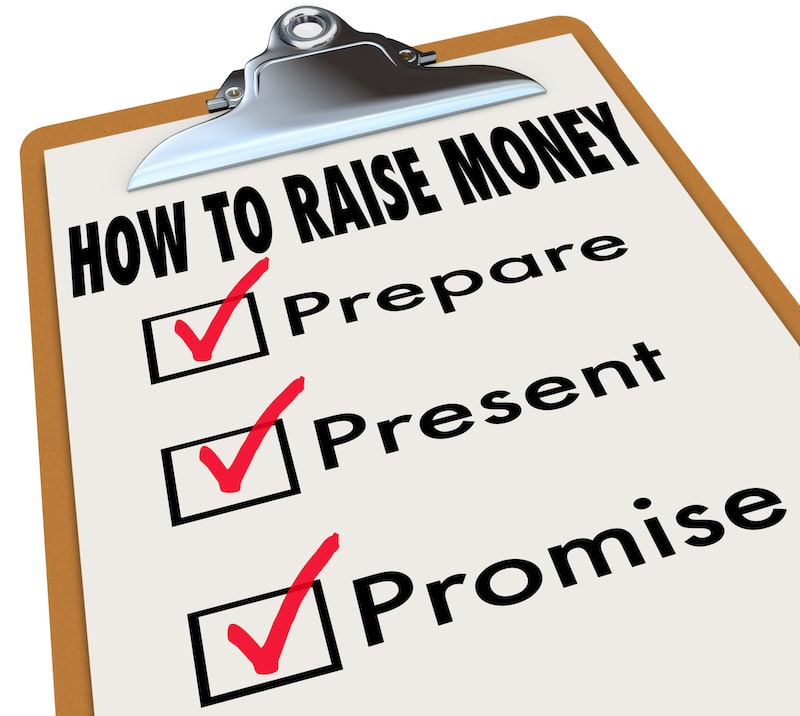You can expect a significant return if you organize a fundraising event. As well as raising money, you can build stronger relationships with your donors when you see them face-to-face. When planning and conducting fundraising events, you may be able to raise a great deal of money for your organization, but you may need to put in the time and effort to make them successful. Before the start of your project, you must clearly outline your budget, goals, and purpose. It’s helpful to create a timeline and checklist after setting a date and creating a master plan so you stay organized.
Fundraising is a challenging endeavor if you haven’t conducted many similar campaigns in the past. Nevertheless, creating the perfect plan or improving your existing strategy isn’t as difficult as you may think. While it takes some effort to coordinate the many moving parts, below are some steps to transpire successful fundraisers.
Check Your Goals
This fundraising event is the time to determine the goals you are trying to achieve. What kind of non-profit organization, cause, or project are you trying to raise funds for? How much should be allocated for this event?
By defining your goals, you will determine how many venues, staff, catering, and several guests you will need. The following objectives should be set:
-
Number Of Attendees
What is the anticipated turnout for your event? This number is essential in determining what kind of media you intend to obtain and how much you wish to raise. Use an effective event invitation template to create a fantastic invitation for your event. This is crucial as this will determine your attendees’ presence.
-
Fundraising Goal
Of course, raising as much money as possible is the most crucial goal of any fundraising event. However, do not strive to achieve too high a goal. It’s essential to set a goal that entirely meets the needs of your cause when planning a first fundraising event. High-profile galas can indeed cost hundreds of thousands of dollars, which means the fundraiser’s goals increase dramatically, but the stakes don’t have to be that high. Your event is worth it if the return on investment is higher than the cost.
-
Media Attention
Getting the press’s attention significantly increases attendees’ likelihood of giving to your cause afterward or of helping you host your next event.
-
Email Subscribers
Having fundraising events like this can help you gather personal information from your guests, leading to deeper engagement between these individuals and your charity. If you continue to build a relationship, it will likely result in those attendees contributing in the future. These happenings will shape your decisions as you move forward.

Build An Energized Team
If you want to succeed in fundraising, your team is just as important as the software tools you use. The success of a campaign relies on successfully rallying and managing its team members. Donors are often prompted to give not because of your attractive donation page but because of human connection.
Here are some factors to consider as you plan your fundraising plan:
-
Board Members
You may need your board’s approval for any significant project your organization undertakes. But, since they have relationships in the community, they may also be invaluable.
-
Team Members
Employees need to be energetic, enthusiastic, and ready to take on the effort. Understand everyone’s long-term and immediate goals for the campaign before starting.
-
Volunteers
Employees in your organization can be relieved of the burden of completing more at fundraisers by bringing on volunteers.
-
Consultants
Having a third-party team member helping to guide your strategy can help regardless of whether you need a non-profit fundraising consultant or general non-profit tech consultants.
Your campaign will require many people’s participation, so you need them to be in sync and committed for the entire duration of the event.
Set A Budget
It’s now time to figure out how much you intend to spend and what you hope to earn from this event. Unless you anticipate an emergency, it’s crucial not to deviate from your budget after it’s set. You want to make sure there’s at least a 10% increase in your revenue for the event’s overall costs, so you have to keep all associated fees on a manageable level. If you plan to attract thirty people to your event, spending $100,000 on a marketing campaign isn’t practical.
However, include the following items in your budget:
- Personnel Costs
- Location
- Event Planners And Caterers
- Fees for speakers and entertainment
- Marketing And Publicity
- Software Costs
Select a Date and Venue
The ideal time and place for your event should be decided six months in advance. When deciding on the venue for your event, take into consideration:
- Size
- Layout
- Cost
- Parking
- Sound and lighting
- Permits and licensing
- Wi-Fi and cell service
- Decide on a date. In part, the date you choose will be determined by the event space you desire. Be in touch with the organization to find an open spot for your event. Your donors will also appreciate dates that are convenient for them. A weekend event is generally better because it attracts more visitors. Just make sure there are no significant holidays or competing events scheduled during this time.
Ensure the ideal date and venue are selected six months in advance so that as many of your donors can attend.
Publicize The Event
Answer these questions and consider them when formulating the best marketing strategy:
- What is your marketing goal? Think about where your publicity will be seen by the people you want to attract and what they’ll get out of your event.
- Who will distribute the posters and leaflets? How will the posters and pamphlets be distributed?
- Are you planning to advertise on social media? You can set up an event on Facebook and invite people to the event. Additionally, you could use Twitter to send reminders for the weeks and days leading up to your event.
- Are you tense about the idea of broadcasting to promote the event? Don’t be afraid to try out other forms of media like your community radio station, local newspaper, and so on.
Even if it means that the final details can’t be included in the publicity, getting publicity early on is always best. The event’s date and some basic information about it should be included in your first publicity piece, but more detailed information shouldn’t be included until closer to the event.
Conclusion
A well-outlined plan and a great team can make planning a fundraising event a smooth process. Don’t lose sight of the big picture, and pay attention to time and expenses so you can optimize your fundraising effort.



